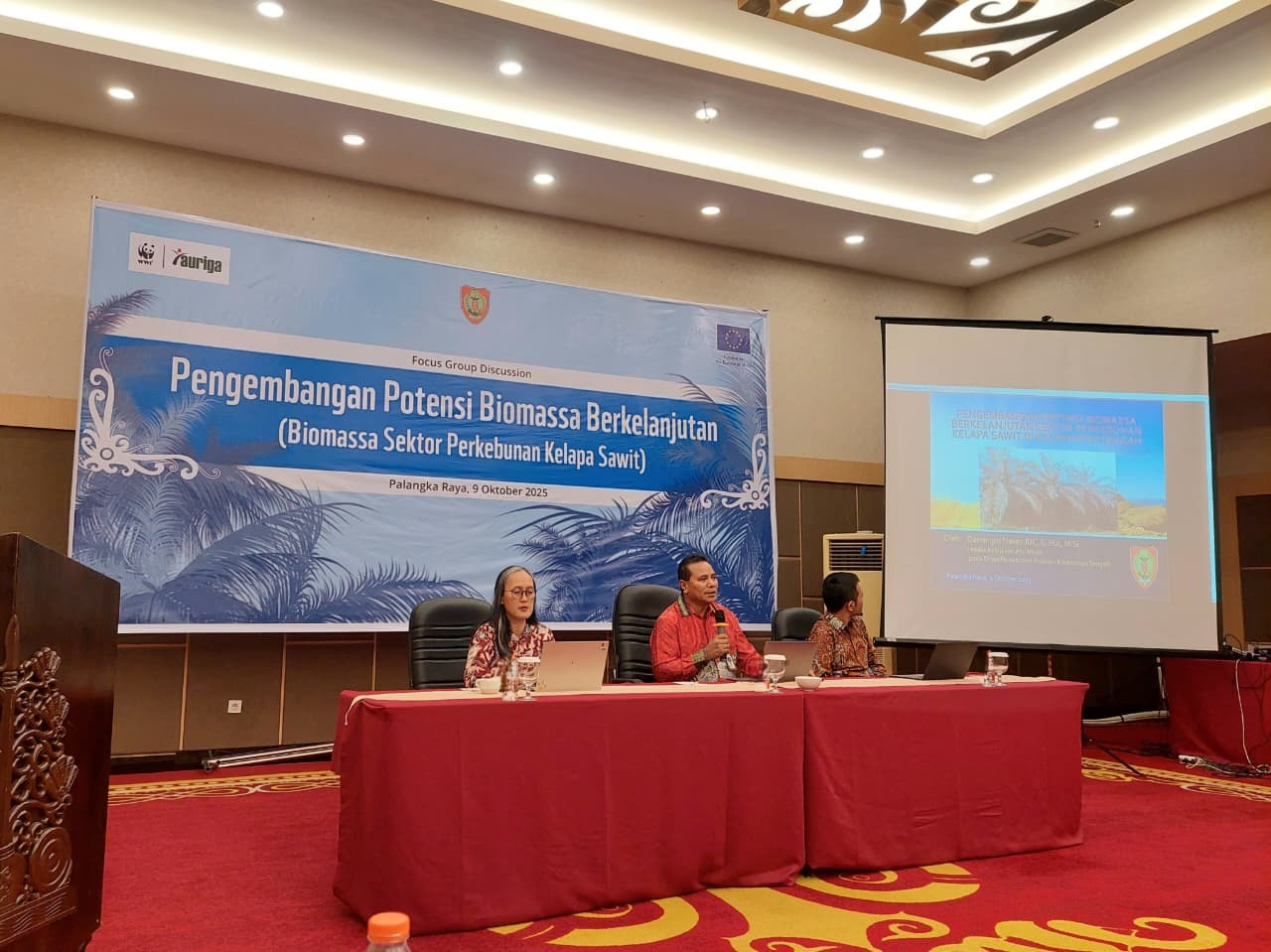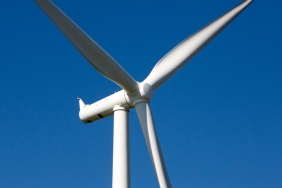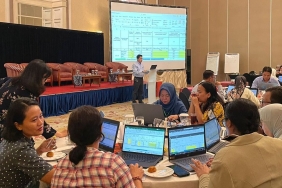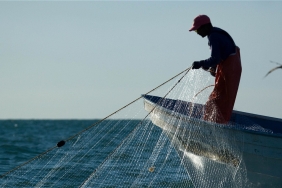FOCUS GROUP DISCUSSION (FGD) ACTIVITY ON SUSTAINABLE BIOMASS POTENTIAL DEVELOPMENT IN CENTRAL KALIMANTAN
Central Kalimantan Province Plantation Agency, in collaboration with WWF-Indonesia, organized a Focus Group Discussion (FGD). This activity aims to obtain input from stakeholders related to the planning and implementation of the biomass pilot project in Central Kalimantan.
A Junior Expert Policy Analyst of the Central Kalimantan Plantation Office, Dominggus Neves, opened the discussion with a presentation on the great potential for sustainable biomass development in Central Kalimantan Province. The extent of national palm oil plantations in Central Kalimantan makes it the province with the fourth-largest biomass potential in Indonesia (Minister of Agriculture Decree No. 833 of 2019). In the next session, Fano Alfian Ardyansyah, CEO of Ailesh, presented the results of the scoping study conducted by WWFWWWF-Indonesia, which included mapping the potential for biomass development from the utilization of palm oil waste in Central Kalimantan. WWF-Indonesia also presented a plan to implement a sustainable biomass pilot project as the next step in implementing the study results.
Regulatively, this effort is in line with the issuance of Presidential Regulation Number 11 of 2023 concerning Government Affairs, which became the Regional Authority. The regulation provides space for local governments to manage renewable energy, including biomass, and integrate it into the Regional General Energy Plan (RUED), emission reduction strategies, and green economic development.
Synchronization between renewable energy policies and regional policies is important so that the direction of biomass development can support national decarbonization efforts without causing overlapping regulations. Biomass utilization is considered to be able to contribute to improving the energy mix while strengthening the regional economy.
The potential for biomass development in the western region of Central Kalimantan is also a major consideration, given the availability of raw materials and favorable geographical conditions. In addition, the forum also emphasized the importance of community empowerment. Through the involvement of Village-Owned Enterprises (BUMDes) and local groups, biomass development is expected to strengthen the supply chain while creating new economic value for the community.
Description: A discussion at the FGD on Sustainable Biomass Potential Development in Palangka Raya, which brought together representatives from various government agencies, academics, and community organizations.
Through this FGD, participants emphasized that sustainable biomass development must be carried out in an integrated manner by paying attention to three main pillars: strengthening regulations, implementing environmentally friendly technology, and inclusive community participation. Synergy among stakeholders is believed to be an important step in strengthening sustainable biomass development and promoting renewable energy transition at the national level.
***
About the Enabling Civil Society for Sustainable Transition Project
WWF-Indonesia, Auriga Nusantara, supported by the European Union, is collaborating on the project "Supporting Civil Society Contributions for Prosperous, Equitable and Sustainable Development in Energy Transition and Sustainable Land Management" (ECS). The project aims to promote and strengthen civil society organizations at national and sub-national levels to play an important role in the formulation of energy transition and sustainable land-management policies, as well as in their implementation at the field level
This publication was funded by the European Union. Its contents are the sole responsibility of WWF-Indonesia, and Auriga Nusantara does not necessarily reflect the views of the European Union.





